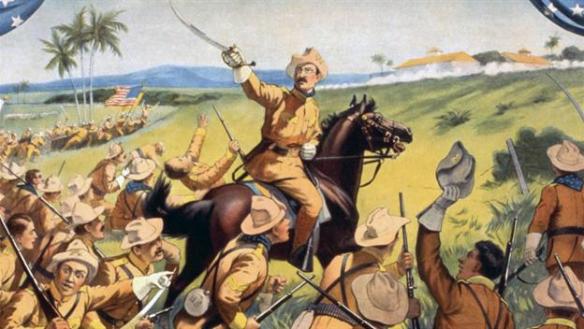Cubans and Puerto Ricans did not participate in the Treaty of Paris of December 1898 that ended both the Spanish-American War and the reign of the Spanish Empire in the Western Hemisphere by calling for Spain’s withdrawal from Puerto Rico and Cuba. Puerto Rico became a U.S. possession. Cuba became independent in May 1902, but a special U.S.–Cuban relationship was established. The Roosevelt administration granted Cuban independence while maintaining control over Cubans, whom it considered unfit for self-government, through an amendment to the U.S. Army appropriations bill for fiscal year 1902 known as the Platt Amendment. Named for Connecticut Senator Orville Platt, the amendment severely curtailed the new nation of Cuba’s autonomy. U.S. troops left the island only after the Cubans incorporated the amendment’s provisions into the Cuban constitution, where it remained until withdrawn with U.S. approval in 1934. The amendment granted the U.S. the right to militarily intervene in Cuban national affairs.
The United States demanded land for a naval base in Guantánamo Bay following U.S. naval officer and historian Alfred Thayer Mahan’s recommendation that overseas coaling and naval stations needed to be acquired to assert U.S. power around the world. The amendment provided that the Cuban government would not assume any extraordinary public debt, reflecting the U.S. fear of European intervention in the Caribbean to collect on defaulted debts. U.S. interventions to take over public finances and protect U.S. private capital in Central America and the Caribbean became a major theme in U.S.–Latin American relations at the beginning of the twentieth century.
